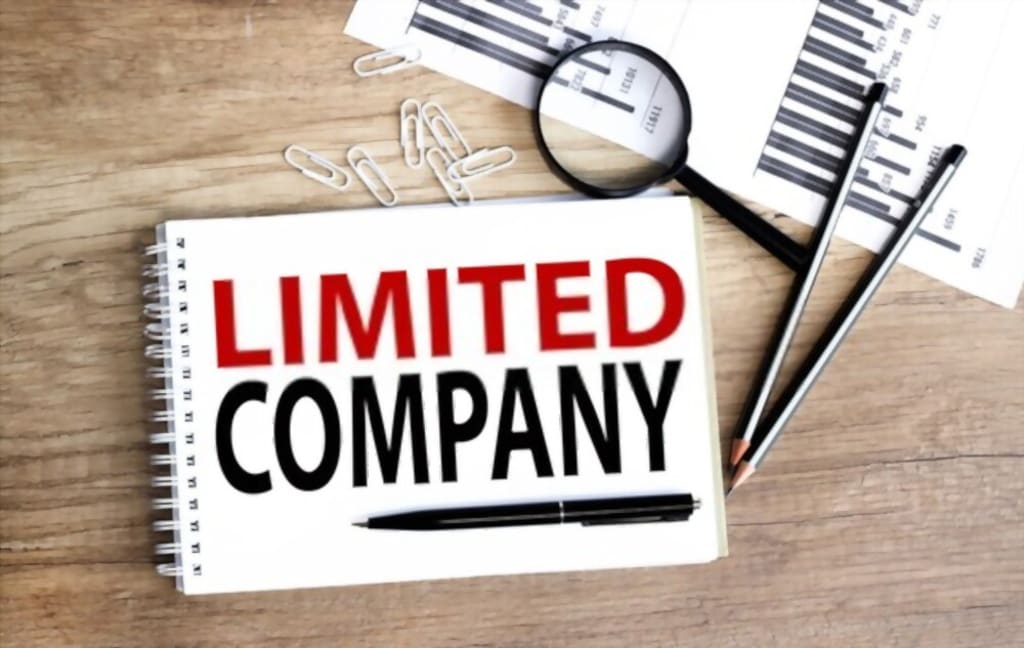
If you decide to work for yourself and start your own business, the legal form of your organisation is likely to be the most crucial decision you make. But what's the difference between working for yourself and operating as a limited company? Is there any effect on the tax you pay as a result of this?
You must choose the right structure for your company, as doing so incorrectly could result in a far higher tax payment than necessary. Whether you choose to operate as a sole trader or a limited company is determined by a number of criteria, including your tax situation, the ownership of your company, and your plans for growth and liability. It's also useful to know what kind of customer you want to serve.
In essence, forming a limited company means keeping your company's funds distinct from your own. You are financially responsible for the success or failure of your business if you are self-employed as a lone trader. This implies that if your business fails or you fall into debt and are unable to make payments, your savings, home, and automobile are at risk. However, if you form a limited corporation, your liability is limited. This means that your personal funds are treated separately from those of your company. As a result, a limited company's corporate director is not held personally liable for the company's financial failures.
What Does Being Self-Employed or a Sole Trader Mean?
You own your own business and work for yourself if you are self-employed. No one else owns your firm, and you don't have shareholders or officers – as a contractor, you have complete control over your operations. In contrast to a limited company, which has limited liability protection, if your firm has financial difficulties or legal action is brought against you, you are personally liable and must pay charges from your own funds. Losses can be mitigated by a limited business, but if you're self-employed, they have a direct impact on your personal income.
You must still pay tax as a limited business if you generate a profit as a self-employed person, but the amount you pay will be different. Instead of paying Corporation Tax, you will pay Income Tax as an individual. As a self-employed individual, you must additionally pay class two and class four National Insurance, which is higher than that of a director of a limited business. Self-employment is considered as having a disadvantage in terms of taxation. Self-employed workers, on the other hand, have more flexibility in extracting income from their firm without incurring immediate tax consequences. A limited company's structure makes it difficult for directors to do so.
What Is a Limited Liability Company (LLC)?
The identity of a limited corporation is distinct from that of its shareholders and directors. You are your business if you are a self-employed sole trader, such as a freelancer, and the two identities merge. The identity of a limited company is distinct from individuals who own and administer it, and the director cannot be held personally accountable for the business's financial mismanagement. However, if a director commits fraud or violates health and safety regulations, they may be held personally accountable.
You don't "own" a limited corporation if you're the one who started it. Shares and stakeholders are used to determine ownership. Based on share ownership capital rights, you can own a stake in a company — whether it's 10% or 90% — as well as a proportion of a firm.
In the same way that a self-employed sole trader is not your own boss when you form a limited business, you are not your own boss when you form a limited company. Instead, you'll be a company officer or director, reporting to owners and stakeholders with vested interests in the company. You don't have "employee" status as a managing director of a limited company, and you don't have automatic entitlements to benefits like the national minimum wage.
All taxable gains must be paid by a limited corporation. It is subject to Corporation Tax, which is significantly lower than personal income tax. PAYE and National Insurance contributions must, however, be paid by all employees and directors. The Corporation Tax is charged at a rate of 19%. Business directors are responsible for their own income tax, which is calculated based on their company remuneration. To take advantage of limited company tax benefits, some directors choose to pay themselves a lesser income so that profits can stay in the firm instead of being taxed. National Insurance contributions are also reduced as a result of this. If directors want to, they can still pay themselves cash in the form of dividends.
accounting firms in London help small businesses & startups with their accounting and taxation matters, bookkeeping to keep their business running perfectly.
About the Creator
Amelia
Are you ready to skyrocket your online presence? Look no further! I'm Amelia, your go-to Digital Marketing Expert, here to take your brand to newheights
My Skills
SEO Optimization
Social Media Management
PPC Advertising
Analytics & Reporting






Comments
There are no comments for this story
Be the first to respond and start the conversation.